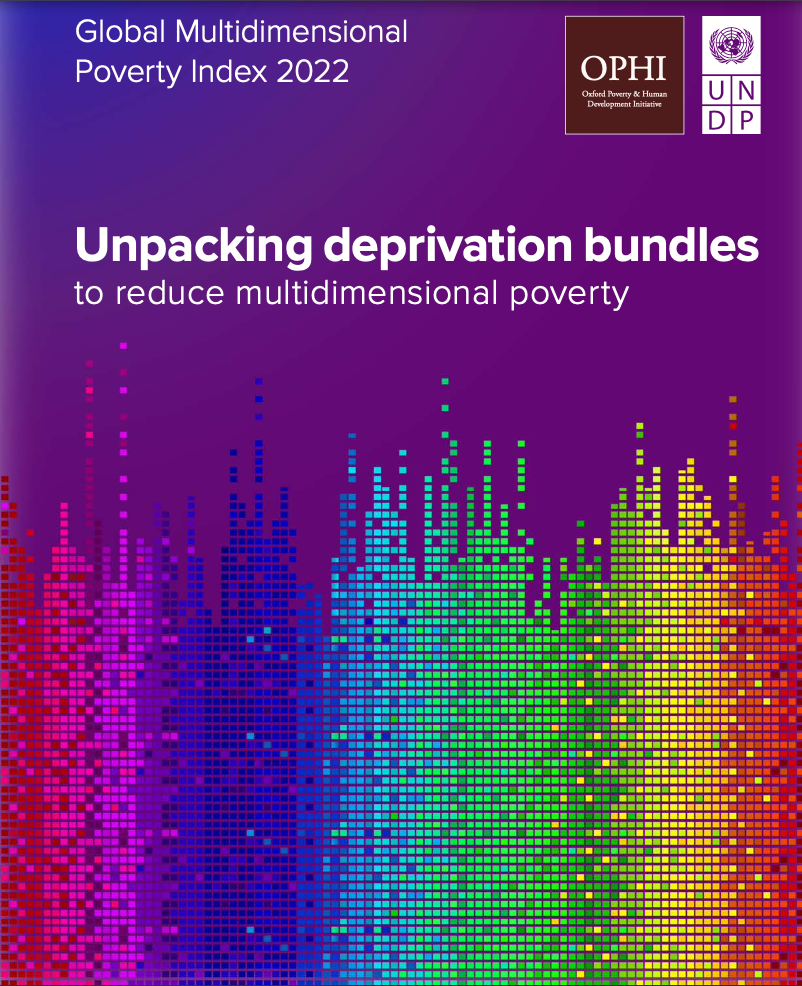Global Multidimensional Poverty Index 2022: Unpacking Deprivation Bundles to Reduce Multidimensional Poverty
This year’s report, Global Multidimensional Poverty Index 2022: Unpacking deprivation bundles to reduce multidimensional poverty, produced in partnership with the United Nations Development Programme Human Development Report Office (UNDP HDRO) presents the key findings of the global MPI 2022: The analyses include:
A new global study of interlinkages, or the simultaneous interlinked deprivations which multidimensionally poor people face around the world. The report presents the first in-depth analysis of the possible combinations – or bundles – of deprivations across the ten indicators measured in the global MPI. It investigates which interlinked deprivations are most frequent through a regional analysis and country-level case studies and explores how this analysis can offer important information for designing strategies that address multiple aspects of poverty at the same time.
The annual global update of multidimensional poverty levels for 111 countries in developing regions, and an analysis of trends for 81 countries using data from 2000 to 2020/2021.
A case study of the significant reductions of poverty in India where 415 million people left poverty (2015/16-2019/21) – demonstrating how the SDG Target 1.2 to reduce at least by half the proportion of men, women and children of all ages living in poverty in all its dimensions by 2030 is possible.
A call to action to improve the quality and frequency of data collection to ensure better-informed poverty reduction policies.
Citation: UNDP and OPHI (2022). Global Multidimensional Poverty Index 2022: Unpacking deprivation bundles to reduce multidimensional poverty. United Nations Development Programme (UNDP), and Oxford Poverty and Human Development Initiative (OPHI), University of Oxford.
Citation: UNDP and OPHI (2022). Global Multidimensional Poverty Index 2022: Unpacking deprivation bundles to reduce multidimensional poverty. United Nations Development Programme (UNDP), and Oxford Poverty and Human Development Initiative (OPHI), University of Oxford.



